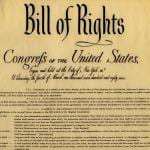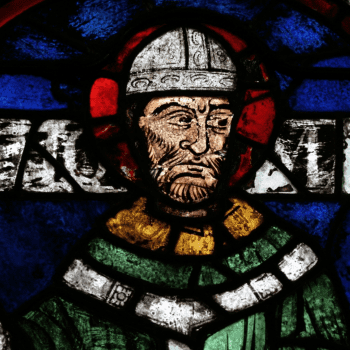Marriage has always been at the center of politics. In most of the world it is used to solve problems—to settle dynastic disputes, to distribute property, or to join one family to another. Within this construct, women in many countries still have no legal right or choice as to whom or when they marry. Historically, the struggle to control marriage has initiated civil wars, deposed monarchs and even created churches. Today, the issue of marriage bitterly divides Americans, most of whom misunderstand the First Amendment and the oft-misappropriated phrase “separation between church and state.”
It was not until the 16th century that the government began to oversee marriage. It never had previously—only churches and synagogues recorded and regulated birth, marriage, sex, and death.
After 16th century protestant reformers overhauled the existing quasi- church-state relationship, marriage ordinances previously overseen by the Roman Catholic Church were transferred to the secular state. Martin Luther, the German Roman Catholic priest, who initiated the first Protestant Reformation, said marriage was a “worldly thing … that belongs to the realm of government.” John Calvin, his Swiss counterpart, reformulated Christian marriage by enacting the Marriage Ordinance of Geneva, which imposed “The dual requirements of state registration and church consecration to constitute marriage” as valid.
In the early 1600s, English Puritans immigrated to America, in part, because they rejected the Church of England’s position on marriage. The Puritans asserted marriage was a civil contract, not a religious ceremony. The law they instituted—which became the customary model for marriage throughout New England—required marriages to be “agreed” or “executed” (not “performed” or “solemnized”) by a magistrate, not a minister. They also legalized divorce if the terms of the marriage covenant were broken. Other colonial regions followed different traditions: Virginian law modeled the Anglican position on marriage; Quakers brought their version to Delaware, and Catholics to Maryland and other states.
Unlike its European counterparts, which instituted civil marriage in the 18th and 19th centuries, the United States left the issue of marriage to the states, resembling a mélange of western Christian marriage traditions within a federalist system.
Since 2004, 37 states have granted marriage licenses to same-sex couples. However, in many cases, such as in Iowa or Alabama, for example, licenses for same-sex unions are given despite state statutes or constitutions, which prohibit it. Unelected judged have overruled the will of the people, as was the case in California with Proposition 8.
The federal government did not codify marriage until 1996 through the Defense of Marriage Act (DOMA). In 2012 Barack Obama became the first sitting president to advocate that same-sex marriage be legalized and in 2013 the Supreme Court struck down DOMA. This week the Supreme Court rules on several cases related to marriage despite the fact that Justices Kagan and Ginsberg should, but have not, recused themselves.
How did America get in this quagmire?
Protestants were instrumental in moving marriage into the civil realm. Had they followed the early church’s example, marriage may not have been thrust into the responsibility of government at all.
Early Christians in the first through third century understood marriage as a union between one man and one woman created by God and consummated through him (Gen. 2). The Apostle Paul wrote that marriage is a “profound mystery;” a man and woman become one flesh through marriage in union with God. This represents more than a civil contract; it represents the sacrificial relationship between Jesus Christ and “his bride,” the “Church.” (cf Eph. 5:22-6:9; Col. 3:18-4:1) Marriage as a sacred union designed to reflect God’s love, was eternally outside of a social or financial contract. It could never be like the secular societal customs practiced for millennia.
In light of this, American Christians find themselves in an ironic and divided situation. No citizen can be legally married without the regulation of the state. Should this be the case?
Should such a sacred union be regulated and overseen by government? If marriage had been left to the church, the church could marry those who practice and follow its beliefs. Civil unions among same-sex couples could be left to the government, providing the full range of civil liberties citizens in their form of government expect.
Granted, 17th century Puritans viewed the government as agents of God’s authority, but they never could have foreseen how non-Christians would use marriage as a political right to erase biblical values through civil law.












